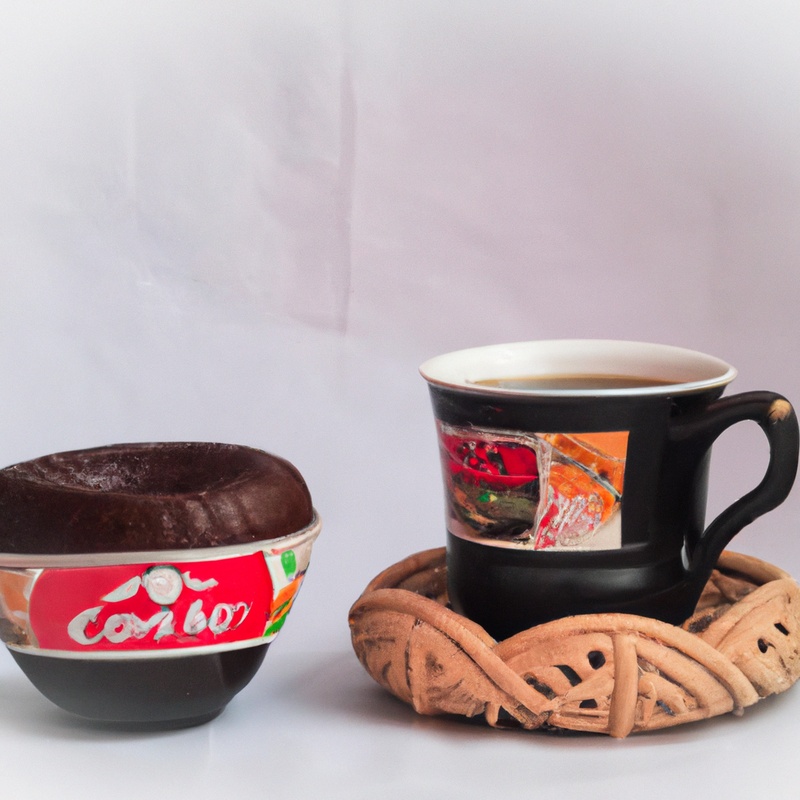Key Takeaways:
- Allowing coffee to rest for 3-5 minutes after brewing enhances its flavor and aroma.
- During the resting period, carbon dioxide and other volatile compounds dissipate, leading to a smoother taste.
- Longer resting times, beyond 15-20 minutes, can result in the coffee losing its optimal qualities.
- Experiment with different resting times to find the one that suits your taste preferences.
Have you ever brewed a fresh cup of coffee and couldn’t resist taking a sip as soon as it was ready? We’ve all been there.
But did you know that allowing coffee to rest after brewing can significantly enhance its flavor profile?
Understanding how coffee changes during the brewing process and why it needs time to rest can make a world of difference in your morning routine. Factors like roast level, brewing method, and personal preference all play a role in determining the ideal resting time.
In this article, we’ll explore the importance of letting coffee rest, discuss the factors that influence the resting time, and provide tips for the best coffee experience after brewing.
Whether you’re a coffee connoisseur or a casual caffeine lover, this guide will help you unlock the true potential of your favorite brew. So, grab your mug, and let’s dive in!
| Resting Time | Description |
| Immediate Consumption | Drink coffee right after brewing |
| 5 Minutes | Allow coffee to cool down slightly before consuming |
| 15-30 Minutes | Let coffee temperature to drop further for optimal taste |
| 1 Hour | Keep coffee warm but let the flavors settle |
| 2-4 Hours | Preserve aroma and taste by keeping coffee in a thermal carafe |
| 12-24 Hours | Cold brew coffee needs to steep in the fridge for desired strength |
The Importance of Allowing Coffee to Rest After Brewing
Allowing coffee to rest after brewing is crucial for enhancing its flavor and aroma.
What Happens to Coffee During the Brewing Process?
During the brewing process, coffee undergoes several chemical changes.
First, hot water extracts the soluble compounds from the coffee grounds, including flavors, aromas, and caffeine.
As the water filters through the grounds, it dissolves and carries these compounds into the coffee solution.
Simultaneously, heat causes chemical reactions that create new flavors and aromas, while also breaking down certain compounds to enhance the taste.
This process, known as extraction, determines the strength and flavor profile of the brewed coffee.
Finally, the brewed coffee is ready to be enjoyed!

Why Should Coffee Be Allowed to Rest?
Coffee should be allowed to rest after brewing because it enhances the flavors and aromas. When you give coffee time to rest, the flavors become more balanced and the acidity mellows out.
The coffee also cools down slightly, which allows you to fully enjoy the taste without burning your tongue.
Essentially, resting coffee enhances the drinking experience and brings out the best qualities of the brew. So, be patient, let your coffee rest for a few minutes, and savor every sip.

Factors Affecting the Ideal Resting Time for Coffee
Factors that determine the ideal resting time for coffee include the roast level, brewing method, and personal preference.
Coffee Roast Level
Coffee Roast Level refers to how long the coffee beans have been roasted and the darkness of their color.
There are different roast levels including light, medium, and dark roast.
Light roast coffee is generally lighter in color and has a more acidic taste.
Medium roast coffee has a balanced flavor and is a popular choice for many coffee drinkers.
Dark roast coffee is characterized by its bold, smoky flavor and dark brown color.
The roast level affects the taste and aroma of the coffee, so choose one that suits your preferences.

Coffee Brewing Method
When it comes to the coffee brewing method, there are various approaches you can take.
It ultimately depends on your personal preference and the equipment you have available.
Here are a few common methods:
- Drip brewing: This is the most popular and convenient method, using an automatic coffee maker. Simply add water and coffee grounds, and the machine takes care of the rest.
- French press: This method involves steeping coarsely ground coffee in hot water for a few minutes, then pressing a plunger to separate the grounds from the liquid.
- Pour over: With this method, you pour hot water over coffee grounds in a container with a filter. It allows for more control over the brewing process and results in a clean, flavorful cup.
- Espresso: This method involves forcing hot water through finely ground coffee under pressure, resulting in a concentrated and intense shot of coffee.
Remember, the brewing method you choose can greatly impact the taste and quality of your coffee, so experiment and find what works best for you!
Personal Preference
When it comes to how long coffee should rest after brewing, personal preference plays a key role.
Some people prefer to drink their coffee immediately after brewing for that fresh and bold taste, while others believe that allowing it to rest for a few minutes enhances the flavor.
Ultimately, the choice is yours.
Experiment with different resting times and see what suits your taste buds best.
Whether you like it hot off the pot or prefer a short resting period, it’s all about what brings you the most enjoyment in your coffee experience.
How Long Should Different Types of Coffee Rest After Brewing?
Different types of coffee require different resting times after brewing, depending on their roast level.
Light Roast Coffee
Light roast coffee is known for its bright and delicate flavors. After brewing, it is recommended to let it rest for about 1-2 minutes before enjoying.
This brief resting period allows the flavors to fully develop and the coffee to cool down slightly.
However, it’s important to note that this is just a general guideline and personal preferences may vary. Experiment with different resting times to find what suits your taste buds best.
The key is to savor and appreciate the unique characteristics of light roast coffee.
Medium Roast Coffee
Medium roast coffee is a popular choice among coffee enthusiasts.
It strikes a balance between the lighter flavors of a light roast and the bolder, more caramelized flavors of a dark roast.
This type of coffee is roasted to a medium-brown color, with a hint of oil on the surface.
It has a well-rounded flavor profile, featuring notes of chocolate, nuts, and a subtle acidity.
Medium roast coffee is versatile and works well with various brewing methods, whether it’s a pour-over, French press, or espresso.
Just make sure to let it rest for a few minutes after brewing to allow the flavors to develop fully.
Enjoy your cup!
Dark Roast Coffee
Dark roast coffee is a bold and intense option for coffee lovers.
It is roasted for a longer time, resulting in a rich and smoky flavor profile.
When brewing dark roast coffee, it is best to let it rest for a few minutes after brewing.
This allows the flavors to fully develop and settle.
You can enjoy your dark roast coffee after about 5-10 minutes of resting.
Remember to savor the deep flavors and take your time to appreciate your cup of dark roast coffee.
Tips for the Best Coffee Experience After Brewing
To enhance your coffee experience after brewing, focus on storing it properly, using the right grind size, and experimenting with resting time to find the perfect balance of flavors.
The Importance of Proper Grind Size
Proper grind size is essential for a great cup of coffee. It affects the extraction process, determining the flavor and strength of your brew.
Grinds that are too fine can result in over-extraction, leading to bitterness.
On the other hand, coarse grinds may under-extract, resulting in weak and sour coffee. Finding the right grind size for your brewing method is crucial.
Experimentation is key to achieving the perfect balance of flavors.
Adjust the grind size until you achieve the desired taste.
Experimenting with Resting Time to Suit Your Taste
Experimenting with resting time can help you customize the taste of your coffee to suit your preferences.
To begin, try tasting your coffee right after brewing and note its flavor profile.
Then, let it rest for a few minutes and taste it again.
This will allow you to determine how the flavors evolve with time.
Keep experimenting with different resting times until you find the perfect balance for your taste buds.
You may prefer a shorter resting time for a brighter and more acidic flavor, or a longer resting time for a smoother and mellower cup.
Happy brewing!
Frequently Asked Questions (FAQs)
Can I drink coffee immediately after brewing?
Can I drink coffee immediately after brewing?
It’s not advisable.
Allowing your coffee to rest for a few minutes after brewing allows the flavors to develop and the temperature to cool down slightly.
This resting period helps to enhance the overall taste and balance of the coffee.
So, while it might be tempting to dive right into that freshly brewed cup, taking a moment to let it rest will result in a more enjoyable drinking experience.
Does the resting time affect the taste of coffee?
The resting time of coffee after brewing does affect its taste. When coffee is freshly brewed, it tends to have a stronger, more acidic flavor.
As it rests, the flavors mellow and become more balanced.
This is especially true for espresso-based drinks like lattes and cappuccinos. On the other hand, some people prefer the bright and vibrant flavors of freshly brewed coffee.
Ultimately, the resting time depends on personal preference, so feel free to experiment and find what suits your taste buds best.
How long can coffee rest before it becomes stale?
Coffee can start to become stale within 30 minutes to 1 hour after brewing. During this time, the flavors and aromas that make coffee enjoyable begin to degrade.
To maintain optimal freshness, it is best to consume coffee within this timeframe or consider using a vacuum-sealed container to prolong its freshness for a few hours.
Remember, the quicker you consume your coffee after brewing, the more flavorful it will be.
Can I store brewed coffee in the fridge?
Yes, you can store brewed coffee in the fridge. It’s a common practice to refrigerate leftover coffee for later consumption.
However, be aware that the flavor and quality may start to deteriorate after a few hours.
To maintain the best taste, it’s recommended to consume refrigerated coffee within 1-2 days. It’s best to store the coffee in an airtight container to prevent it from absorbing unwanted flavors and odors from other foods in the fridge.
Can I reheat coffee after it has rested?
Yes, you can reheat coffee after it has rested.
However, reheating coffee can result in a loss of flavor and quality.
The coffee may become bitter or develop a stale taste.
If you want to reheat your coffee, I recommend doing so in small increments and stirring it well to distribute the heat evenly.
It’s best to drink freshly brewed coffee, but if you can’t finish it all at once, reheating is an option.
Should I rest coffee made with a French press longer compared to other brewing methods?
When it comes to resting coffee made with a French press, you should let it rest for a bit longer compared to other brewing methods. This is because the French press extraction process allows the coffee grounds to steep for a longer period of time, resulting in a richer and more intense flavor.
By allowing your French press coffee to rest for a few minutes after brewing, you give the flavors a chance to fully develop and settle, delivering a more balanced and enjoyable cup of coffee.
So, it’s worth the wait!
Can I speed up the resting process by cooling the coffee?
Yes, you can speed up the resting process of coffee by cooling it.
When you cool the coffee, it helps to lower the temperature quickly, which in turn slows down the oxidation process.
This can help the flavors of the coffee to develop more quickly.
However, it’s important to note that cooling the coffee too quickly can also lead to flavor loss.
It’s best to experiment with different cooling methods to find the right balance for your taste preferences.
Final Verdict
Allowing coffee to rest after brewing is an essential step in maximizing its flavor and aroma.
During the brewing process, coffee releases gases that need time to escape, resulting in a smoother and more balanced taste.
The ideal resting time varies depending on factors such as roast level, brewing method, and personal preference.
Light roasts may benefit from a shorter resting period, while dark roasts may require a longer one.
Storing freshly brewed coffee properly and experimenting with resting time can enhance your coffee experience.
Remember, patience is key in unlocking the full potential of your cup of coffee.
